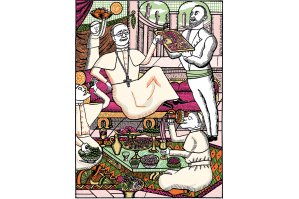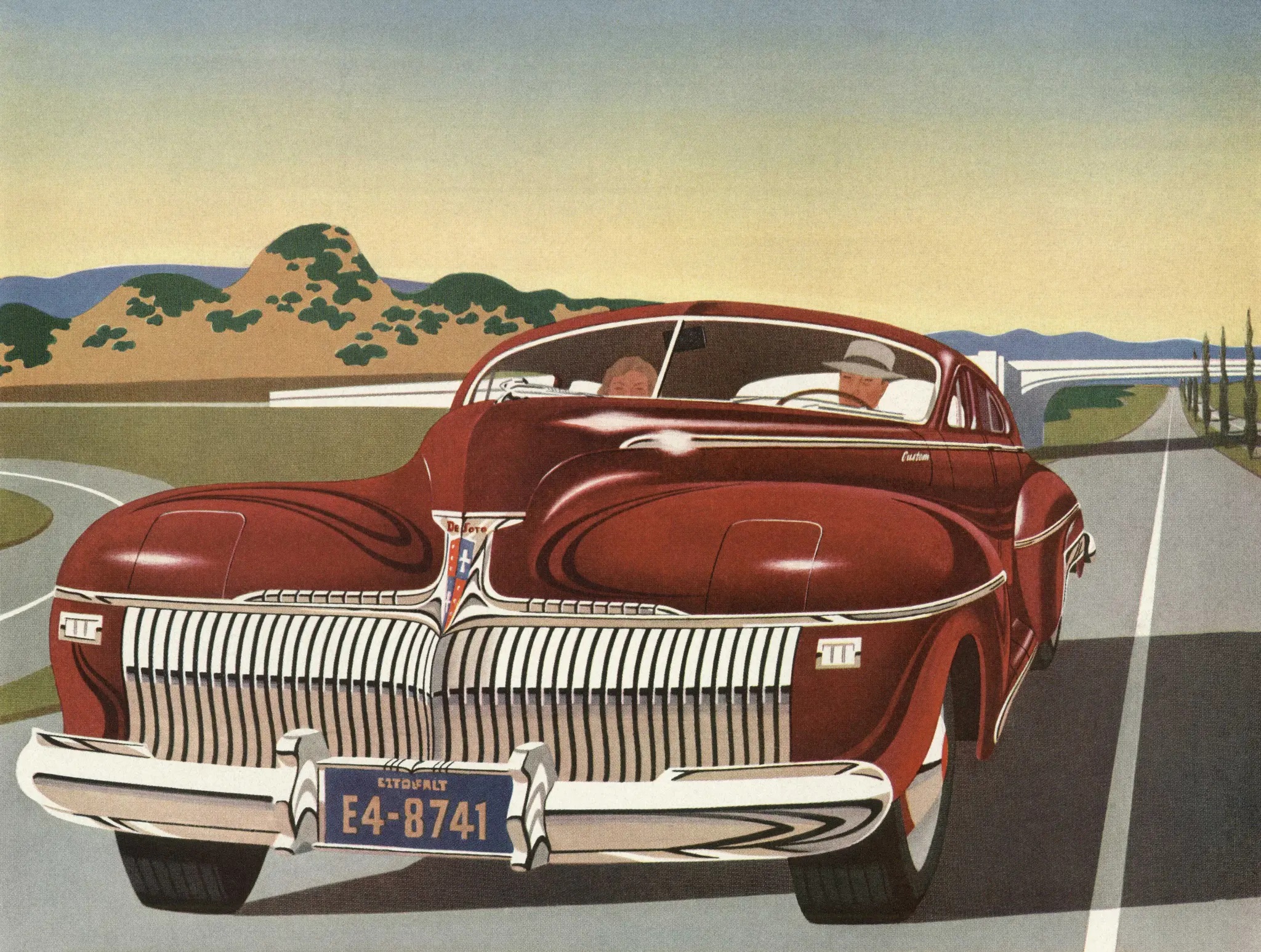It was not an auspicious start. Arriving at JFK the specified three hours before my departure to Athens I was met with a check-in line stretching out the door. The man behind me, in traditional dress and with a shocking amount of luggage for a single traveler, kept shouting ‘Senegal!’ Two hours later, check-in for my flight was closing. I was still at least half an hour away from the desk and so I shamelessly cut the line, earning myself a tongue-lashing from a dyspeptic German but also a boarding document one minute before the flight closed. A dash through security led me to more lines, this time at the gate to check that my coronavirus vaccination card was in hand, Greece having opened to vaccinated travelers in May so as not to risk another lost summer for its most important industry: tourism.
The Acropolis was covered in a cloud the color of a recent bruise which deterred those tourists who had managed to make it to Athens at all. Whereas two years ago the hill thronged with the usual horrors — cruise-ship tours led by umbrella-wielding wretches, central Europeans in capri pants — this summer there couldn’t have been 30 other souls on the rocks.
Later that night the streets in the Plaka were heaving, young Athenians downing cocktails and smoking the funny vapes that seem to have only recently taken hold. I joked with a friend that only the Greeks, with their famous work ethic, could manage to turn Sunday night into one for parties. We didn’t realize till the next morning, as we boarded our 7:00 a.m. ferry for Naxos, that it had been Saturday night after all. We promised ourselves not to disparage the locals for another few hours at least.
Naxos, the greenest of the Cyclades, is not very green at all. The town, rising up from the port, has an air of melancholy, especially as you climb the steep path toward the 13th-century Venetian tower. There was no one about on that steamy Sunday afternoon, and so the beach became the destination. Plaka Beach, two and a half miles of soft sand and azure water, is intermittently served by sunbed operations, each attached to a local taverna across the street. For €5, an umbrella and a bed are yours for the day, along with the opportunity to purchase bottles of Mythos, Greece’s winning lager, each with a nifty pop-top. The concierge at our hotel advised us to go all the way to the end of Plaka Beach; I would not, unless one is keen on encountering nudists.
The boat from Naxos to Paros, a mere 40 minutes, lands you in Parikia, a typical Cycladic town with white cubic buildings starting at the water and extending up into the hills. Our destination was Naousa, a fishing village gone upscale on the north side of the island, where the first thing we encountered was an old salt beating an octopus against a rock. That night the main square on the harbor hummed with activity, everyone jostling to secure a seat with a view of the sunset. Stray dogs, looking like crosses between yellow labs and corgis, wandered between tables, with a smile and no will to beg. The labyrinthine streets held shops with multi-hundred-dollar caftans and linen shirts even paler than my skin.
We’d wanted to get on a boat to do some fishing, but opportunities on Paros seemed limited. After a good deal of searching, a ‘Captain Giorgis’ was found, and miraculously he picked up his phone when we called. But something had been lost in translation. Giorgis was not on Paros but Leros, a small island closer to Turkey than Paros, a hundred miles away as the crow flies. We knew he was on Leros because he repeatedly insisted, ‘I am on Leros.’ He said nothing else. Still, the water beckoned, and the next day we attempted to rent a boat, with the idea of circumnavigating the island, like dime-store Magellans. Back in Parikia, we found a man with a small fleet of 15-foot skiffs.
‘Could we rent a boat?’
‘You could,’ he said, ‘but I wouldn’t.’ The sun was out, but the wind was up; to leave the harbor would be to enter the washing machine. ‘It just wouldn’t be fun,’ he warned. I pride myself on being able to have fun on any sort of boat in any conditions, but the captain was adamant. And so we left the aquatic transit to the professionals, and hopped a 15-minute ferry to the miniature island of Antiparos, less than a mile from Paros proper and 17 square miles in area.
On Antiparos, the destination was the unfortunately named Soros Beach. Perhaps a far-flung outpost of the financier’s empire? There, fresh fish at the beachside restaurant — more Riviera boîte than Greek taverna — could be had for about $60 a pound: rather a lot when the smallest portion is a least that big. But squid two ways yielded a whole specimen grilled with lemon and olive oil and delicately fried miniatures for $40 total. We left the beach full, a bit sunburned, and with infinite wonder at the tattoos some people manage to get.
Mykonos, our final Cycladic stop, is famed for its nightlife, and like every place on earth famed for its nightlife, brings the wrong sort to town. At Scorpio’s — a nightclub on the beach owned by Soho House, the international members club so exclusive it counts nearly 120,000 souls on its rolls — bottle service was available, as well as shots of mastika, the Greek pine-resin liqueur that could make any scene just about bearable. The sunset, pretty enough, gave way to dusky glimpses of lighted yachts docked offshore, and the DJ eased into his set of endlessly indistinguishable ‘deep house’ music, a genre notably lacking in musical depth. The staff urged us not to mix with other groups around the firepit — part of the Greek state’s ongoing coronavirus restrictions — but these sentinels found that goal hard to accomplish. At a place like Scorpio’s, most revelers look the same: globalist, faux-bohemian, self-consciously casual.
Leaving Mykonos from the ferry port the next day, I noticed the massive cruise ship of the day before had been replaced by another from a different line: mass travel was back. But the port of Piraeus, where I spent my final night before an early flight back to New York, had only Greeks, strolling along, ice creams in hand, observing the unbreakable rituals. Greece may never be this empty again.
This article was originally published in The Spectator’s September 2021 World edition.

























